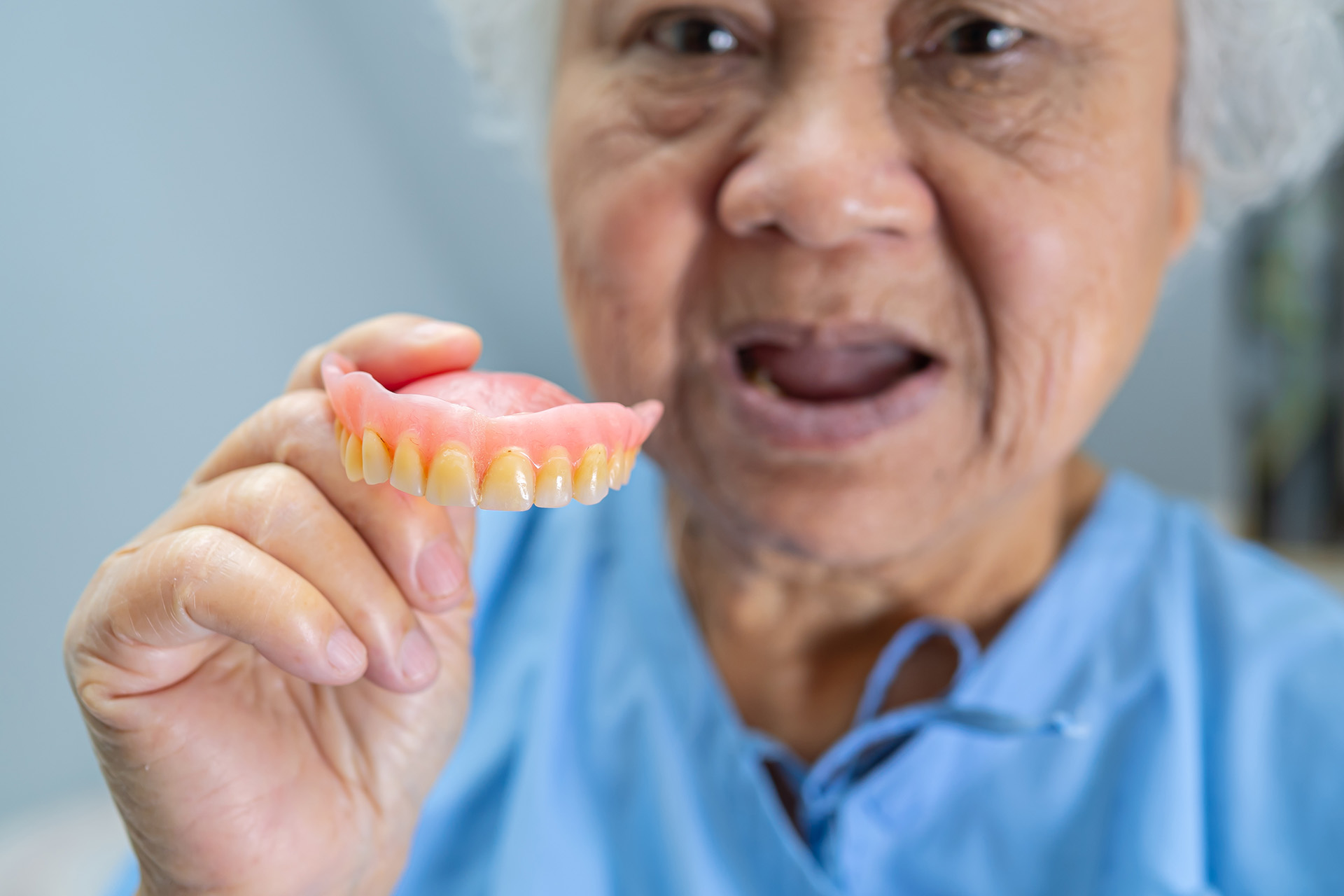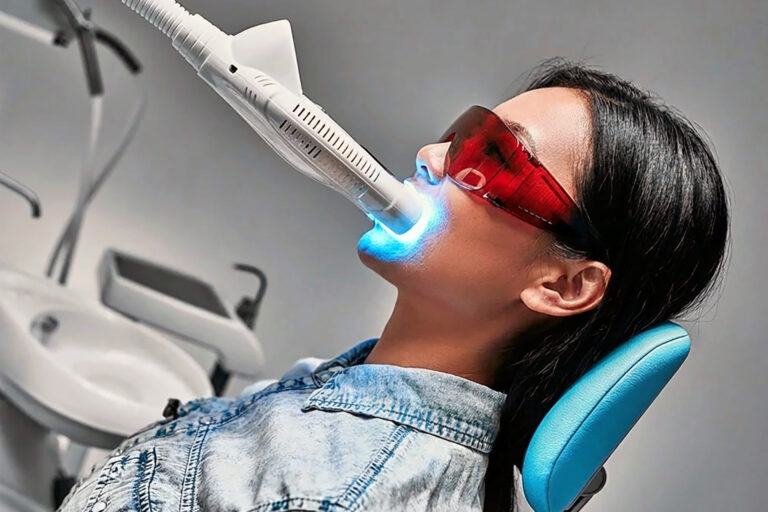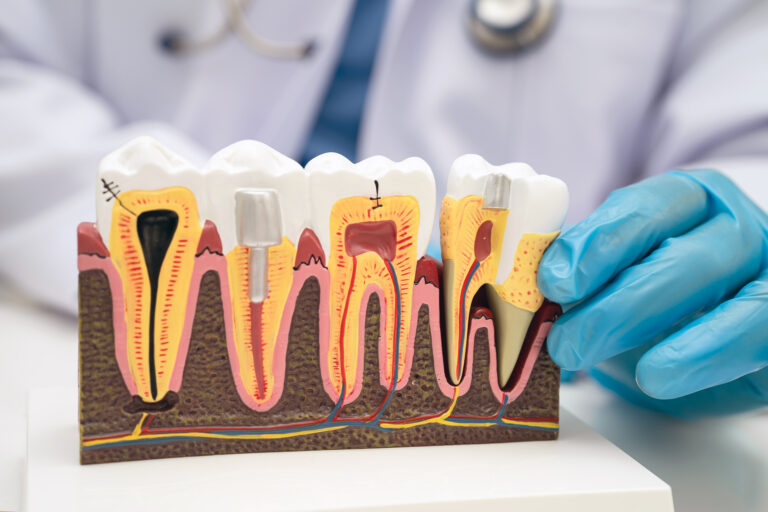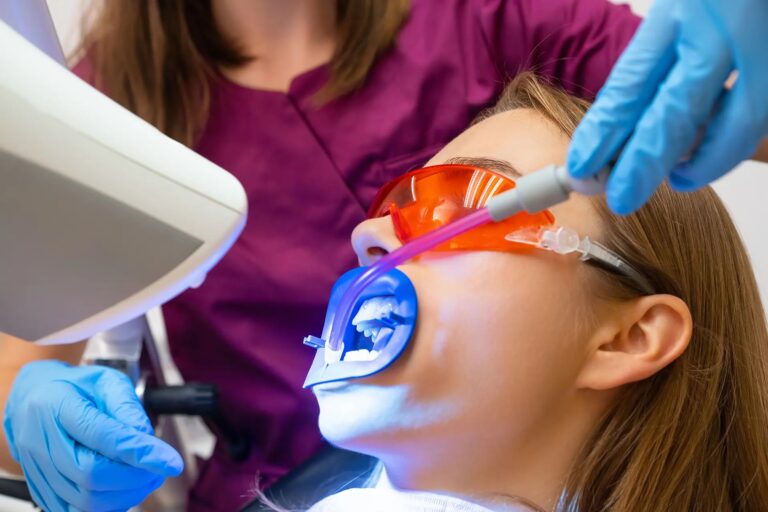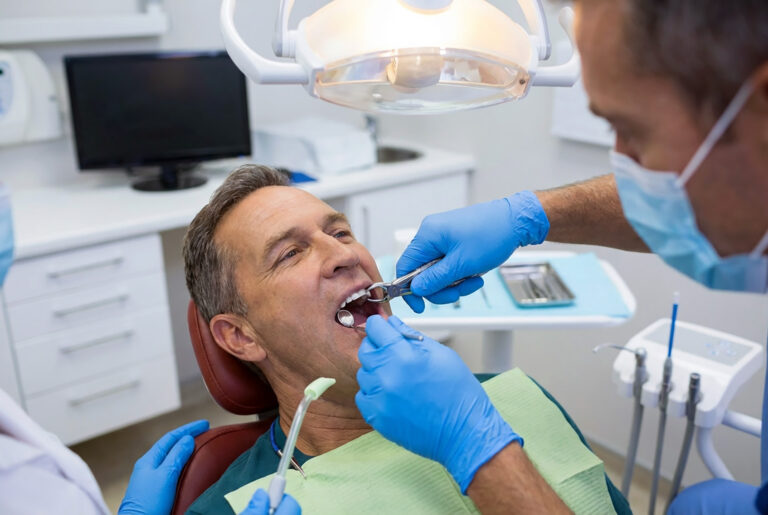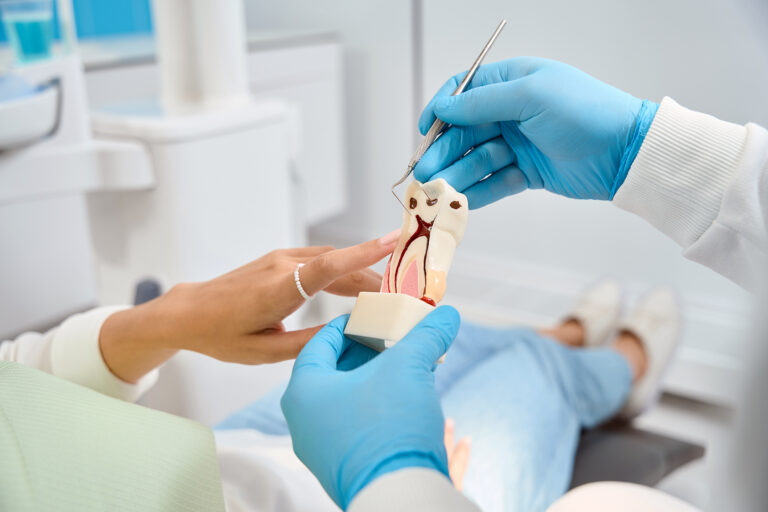Tooth Replacement Options
Tooth loss, whether due to decay, injury or extraction, affects not only your smile but also your ability to chew and speak comfortably. That’s why replacing missing teeth is important for oral health, facial structure and confidence. Dentures and dental implants are among the top solutions. That’s why it’s essential to know the pros and cons of dental implants vs dentures, including cost, lifestyle, and dental health.
If you are unsure which is best for you, understanding the differences between dental implants vs dentures empowers you to make an informed decision with your dentist’s guidance. Consult a dental professional or a dental clinic like TEETH @ Tiong Bahru to receive a solution tailored to your oral health needs.
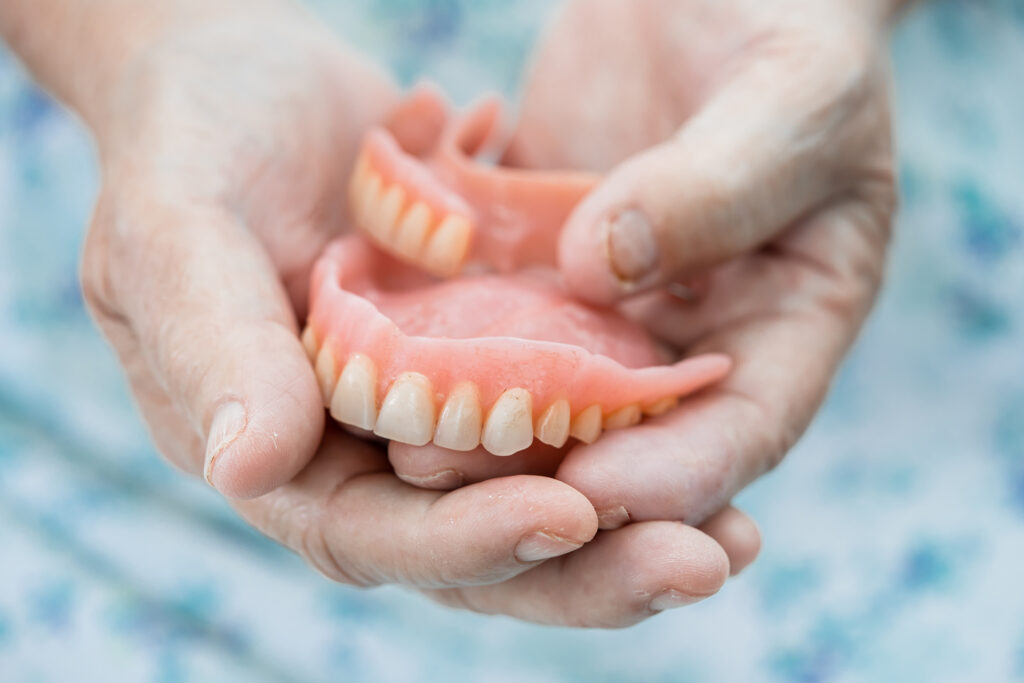
What Are Dentures?
Dentures are removable appliances that replace missing teeth and the surrounding gum tissue. They are custom-made to fit comfortably in your mouth, whether they are full dentures (for a full arch) or partial dentures (for a few missing teeth). Made from acrylic, resin or metal frameworks, dentures restore aesthetics and basic function. Some dentures can be anchored to implants for added stability, combining the benefits of both options.
Dentures are ideal for those looking for a non-invasive, cost-effective solution. They are suitable for patients who are not appropriate for surgery due to health conditions or bone loss. Over time, changes in jawbone structure may require relining or replacement to maintain fit.
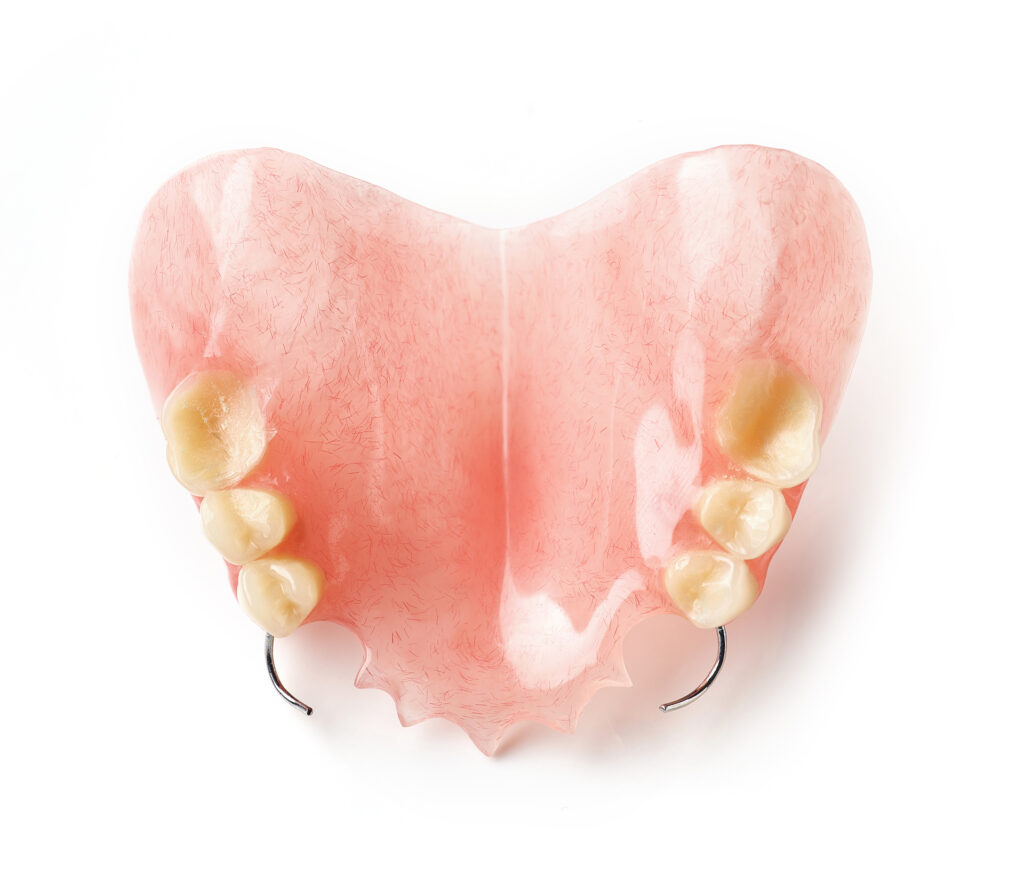
Types of Dentures
When considering tooth replacement options, it’s important to understand the difference between full and partial dentures. Full dentures replace all the teeth in either the upper or lower jaw, providing a complete solution for extensive tooth loss.
Partial dentures are ideal when some natural teeth remain. They fill in the gaps and help maintain the alignment of your existing teeth. Partial dentures can be fixed, cemented onto surrounding teeth for a more permanent fit, or removable, using clasps or precision attachments for easy removal and cleaning.
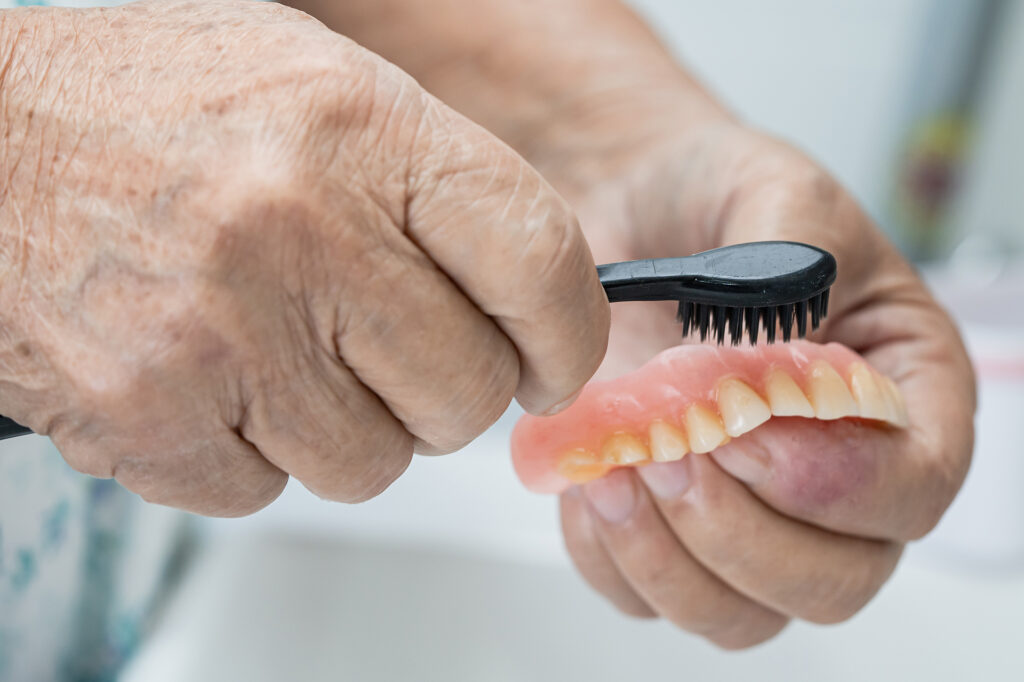
What Are Dental Implants?
A dental implant is a titanium post surgically placed into the jawbone, acting as an artificial tooth root to support replacement teeth such as crowns, bridges or dentures. The dental implant procedure involves placing these metal posts into the jawbone, serving as the foundation for the implant and helping to preserve bone health.
Advances in dental implant treatment have led to improved surgical techniques and reduced discomfort, making the process more accessible and comfortable for patients. Implants look, feel and function like natural teeth and remain stable in your mouth, not moving or slipping during talking or eating. Implants can replace one tooth, multiple teeth, or an entire arch, with options like All-on-4 for full-mouth restoration, providing a natural-looking solution for patients with severe tooth loss.
The dental implant process involves surgery to place a titanium post, osseointegration, where it fuses with the jawbone, and final crown placement over several months. Implants have a lifespan of 15-30 years with proper care, making them a durable option. However, implants require adequate bone density and good overall health, and the upfront cost and surgical nature may deter some patients.
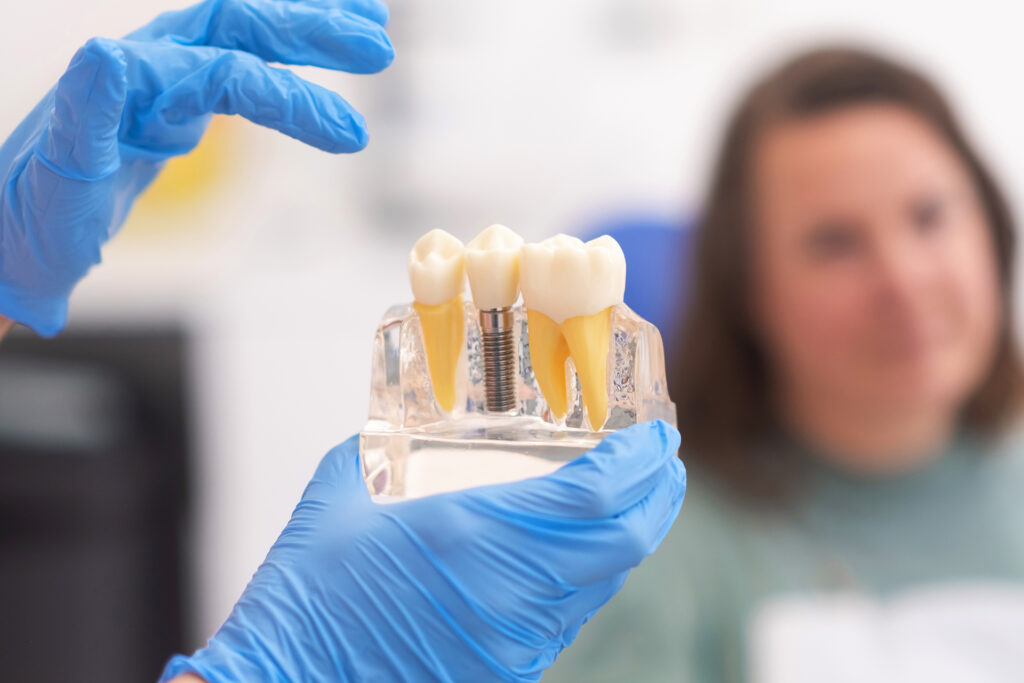
Implant-Supported Dentures: A Hybrid
Implant-supported dentures combine the affordability of dentures with the stability of implants. Typically secured by 2-6 implants, these dentures snap onto the posts, preventing slippage and improving chewing efficiency. They are removable for cleaning, but feel more secure than traditional dentures.
Less invasive than full implants, this option suits patients who want more stability than dentures. However, implant-supported dentures do not provide the same level of bone preservation as full dental implants and do not offer the complete removability and simplicity of traditional dentures. When considering dentures vs dental implants, implant-supported dentures provide a compromise between the two, balancing cost, stability, and maintenance.
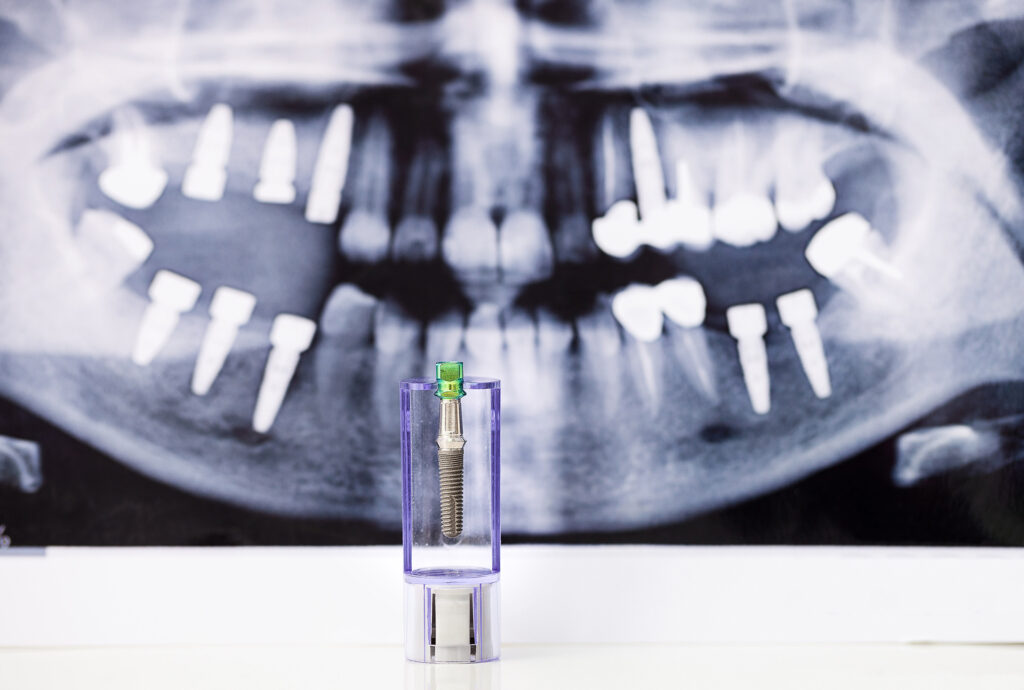
Dentures vs Implants Pros and Cons: Key Comparisons
| Aesthetics and Functionality | Implants mimic natural teeth, offering seamless aesthetics and robust chewing power. Dentures restore the appearance but may feel less natural, as movement can affect speech or eating. |
| Durability and Longevity | Implants can last for decades, often outlasting dentures, which need to be replaced every 5-8 years due to wear or changes in the jawbone. |
| Cost Analysis | Dentures vs implants costs are quite different. Dentures are more affordable upfront, ranging from $500 to $2,000 per arch, depending on the materials used. Implants cost $3,000 to $6,000 per tooth, with full-arch solutions like All-on-4 ranging from $20,000 to $40,000. It’s important to note that while implants require a higher upfront investment, their longevity may reduce long-term costs. |
| Treatment Timeline | Dentures can be fitted in weeks, often requiring just a few visits. Implants involve surgery, healing (3-6 months) and crown placement, extending the process. |
| Bone Health Impact | Implants stimulate the jawbone, preventing bone loss, a critical advantage since tooth loss accelerates resorption. Dentures don’t preserve bone, which can potentially lead to facial sagging over time. |
| Comfort and Maintenance | Dentures need to be removed daily, cleaned and soaked, with potential for discomfort or sore spots. Implants are cared for like natural teeth. Just brush, floss and visit your dentist. |
Dentures and Implants Benefits
Both dentures and dental implants offer many benefits for individuals with missing teeth. Dentures are a practical and affordable solution, ready in a short time frame, making them ideal for those who need immediate tooth replacement. They are non-invasive and still restore your smile and chewing function. Dentures are also adjustable, full or partial sets, depending on your needs.
Dental implants, on the other hand, provide a more permanent and stable solution. Implants function like natural teeth. You can eat, speak and smile with confidence with dental implants.
One of the key advantages of dental implants is that they preserve jawbone density, helping to prevent bone loss and maintain facial structure over time.
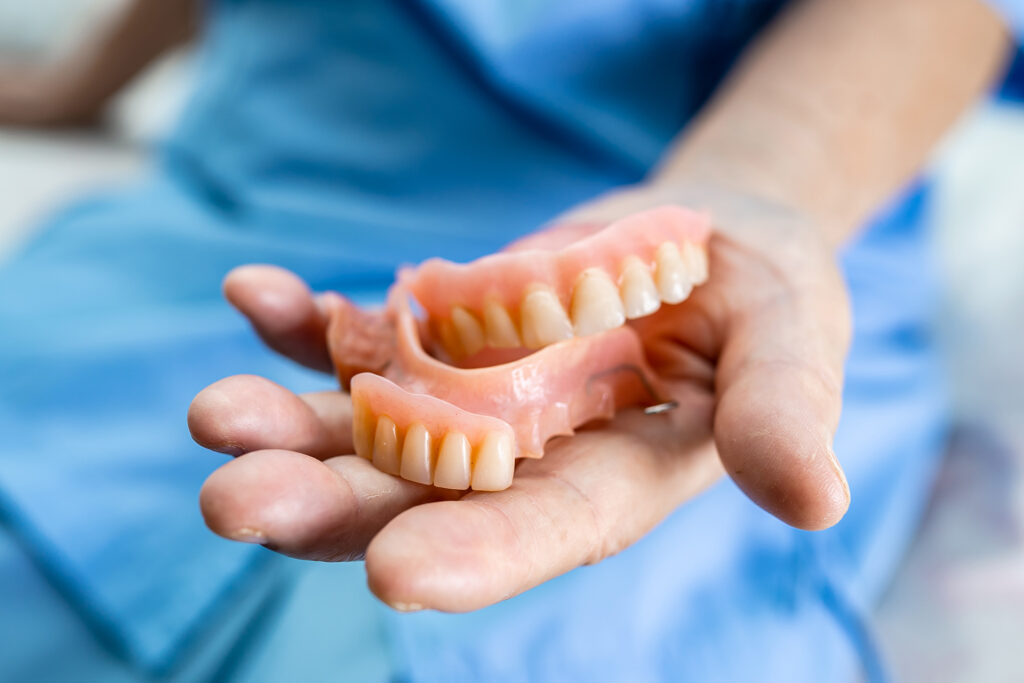
Risks and Complications
While dentures and dental implants are both options for tooth replacement, it’s essential to be aware of the associated risks and complications. With dentures, some patients may experience discomfort, difficulty chewing certain foods or gum irritation, especially as the fit changes over time.
Dental implants involve a surgical procedure, which carries risks such as infection, nerve damage or, in rare cases, implant failure. These risks are minimised when an experienced dentist does the procedure and when patients maintain good oral hygiene.
Regular dental visits are important for both dentures and implants to monitor oral health and address any concerns early. By understanding these risks and working closely with your dentist, you can make informed decisions and enjoy the benefits of your chosen tooth replacement option.
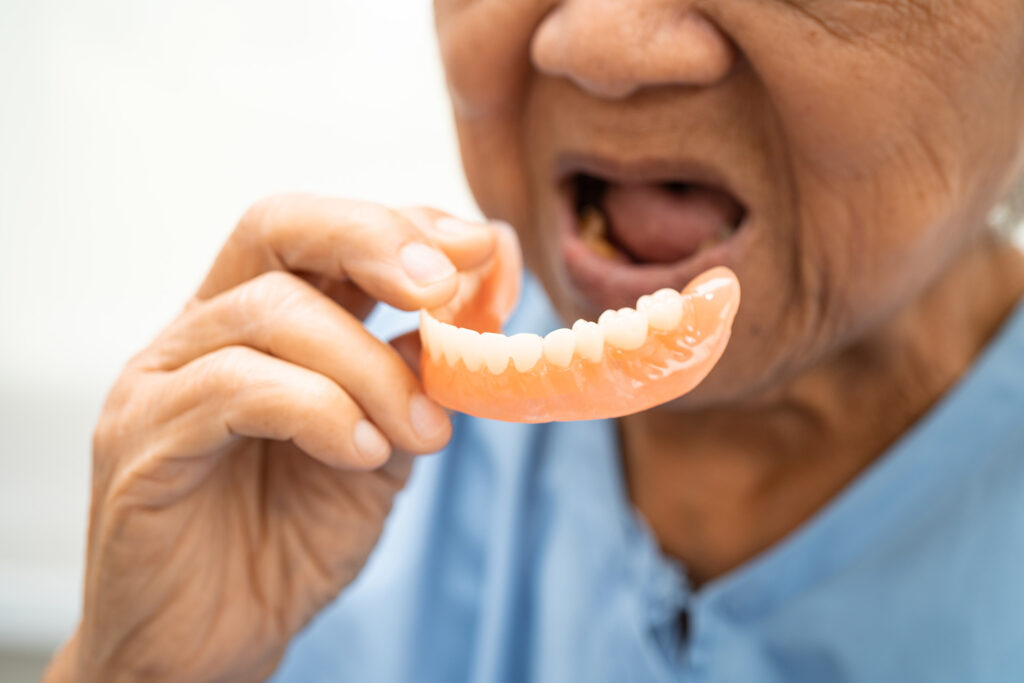
Oral Hygiene for Dentures and Implants
Both dentures and implants require good oral hygiene to last. For dentures, daily cleaning with a soft brush and a non-abrasive cleanser helps prevent staining and bacterial buildup. Soaking overnight and rinsing after meals also helps with longevity.
Implants need to be brushed twice daily, flossed and interdental brushes used to clean around posts. Regular dental visits catch issues early so that both solutions can perform optimally. Neglecting hygiene increases the risk of gum disease, which can compromise either option.
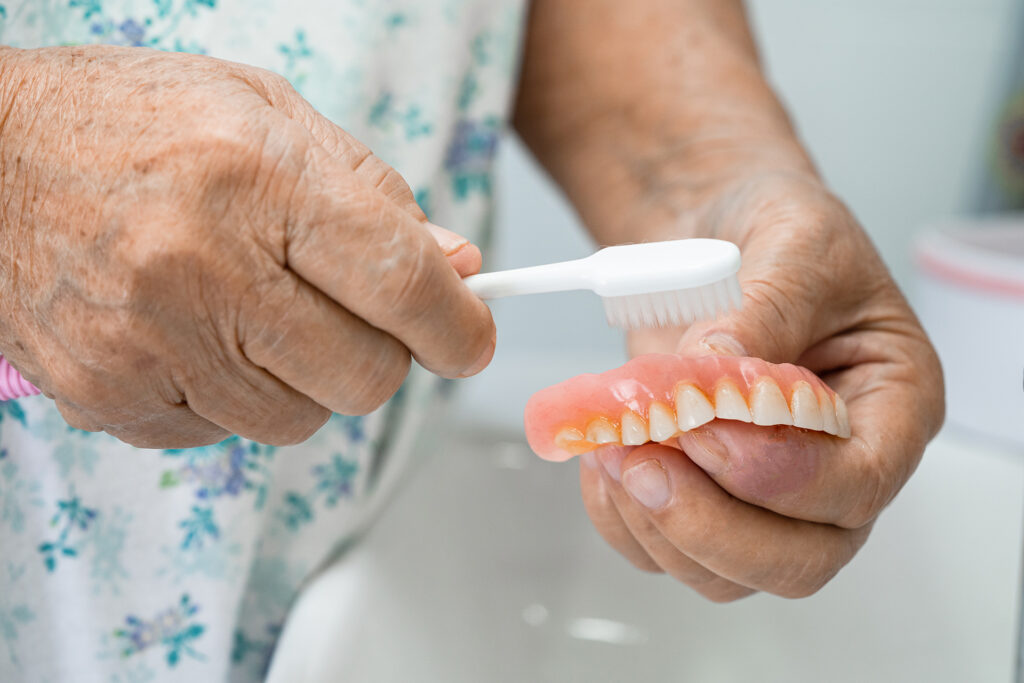
The Treatment Process: What to Expect
Dentures: The process starts with impressions to create a mould, followed by fittings to ensure comfort. In some cases, tooth extraction may be required before denture treatment. These procedures are done in a dental clinic by a dental professional. Partial dentures may involve clasps anchoring to remaining teeth. Adjustments refine fit, with completion in 1–3 visits. Patients adapt within weeks, though initial discomfort is common.
Implants: The process starts with a consultation and imaging to assess bone health. Like with dentures, tooth extraction is sometimes necessary before an implant placement. Surgery involves placing the implant, followed by 3–6 months of healing as it integrates with the bone. These procedures are done in a dental clinic or by a dental professional. A custom crown or bridge is then attached. Temporary restorations may be used during the healing process. Minor swelling or discomfort post-surgery usually resolves quickly.
Implant-Supported Dentures: Combining both, this involves the placement of implants, their healing, and the attachment of a custom denture. Tooth extraction may be needed before starting the process, which is done in a dental clinic or by a dental professional. The process takes months because it requires implants, but it offers more stability than dentures alone.

Still Have Questions about Dentures or Implants?
Choosing between implants and dentures means balancing immediate needs with long-term goals. Dentures offer a quick fix, ideal for those who prioritise cost or avoid surgery. Implants provide a permanent solution, making it more suitable for individuals who value durability and bone health.
Talk to us at TEETH @ Tiong Bahru today about dental implants vs dentures, and let’s get you smiling again with a full set of teeth!
FAQs about Dentures and Implants
Are dentures or implants better for bone health?
Implants stimulate the bone, preventing resorption. Dentures do not have the same effect, leading to bone loss over time.
How long do dentures last vs implants?
Dentures last 5–8 years with proper care. Implants can last 15–30 years or more, depending on maintenance and your dental health.
Can I eat normally with dentures or implants?
What’s the cost of dentures and implants in Singapore?
Dentures range from $500 to $2,000 per arch. Implants cost $3,000–$6,000 per tooth, and full-arch options up to $40,000.

